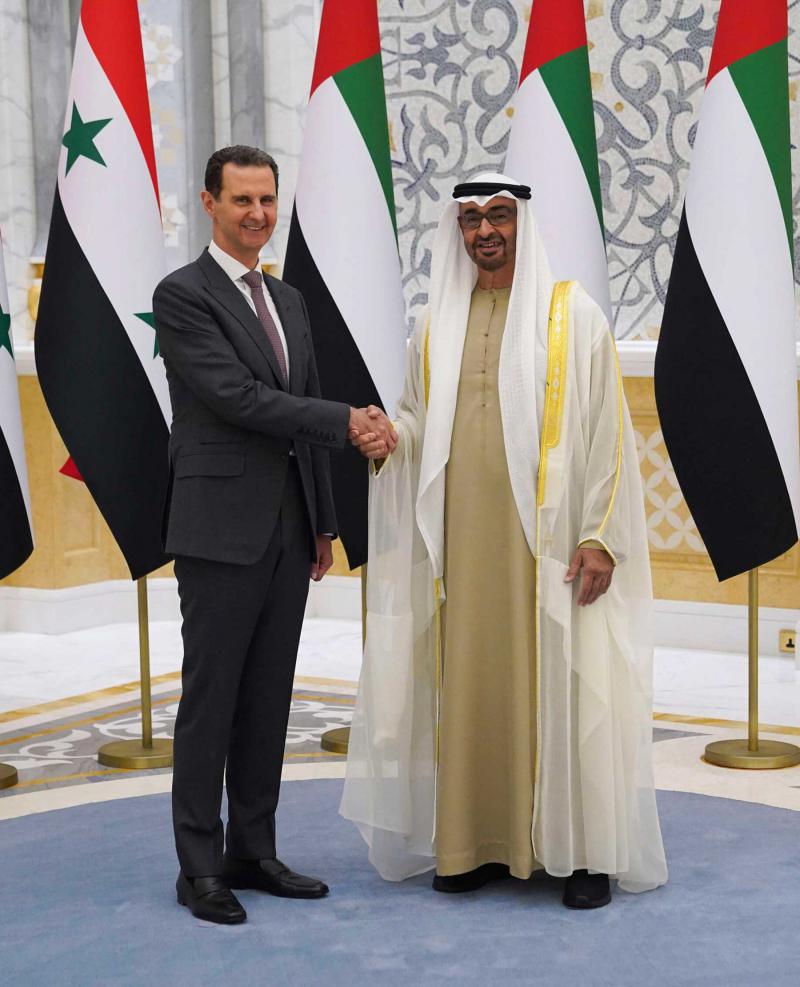The United Arab Emirates Invites Syrian President Bashar Al-Assad To COP28 Climate Summit
The United Arab Emirates invites Syrian President Bashar Al-Assad to COP28 Climate Summit. The summit is scheduled to take place in Dubai from November 30, and if Assad accepts the invitation, it would mark his first participation in a global summit since the beginning of Syria's civil war in 2011.
Author:Dexter CookeReviewer:Hajra ShannonMay 17, 2023446 Shares89.2K Views

The United Arab Emirates invites Syrian President Bashar Al-Assad to COP28 Climate Summit.
The summit is scheduled to take place in Dubai from November 30, and if Assad accepts the invitation, it would mark his first participation in a global summit since the beginning of Syria's civil war in 2011.
The invitation was extended by Sheikh Mohamed bin Zayed Al Nahyan, the President of the UAE and ruler of Abu Dhabi, as confirmed by the UAE embassy in Damascus and Syria's state-run news agency, SANA.
Potential Diplomatic Tensions
The invitation of Bashar al-Assad to the COP28 Climate Summit could potentially create diplomatic tensions for countries that continue to impose sanctions on his regime.
Given the ongoing civil war in Syria and the atrocities associated with it, some nations maintain strict measures against the Syrian government.
Assad's presence at the summit could raise questions about engagement with his regime and how it aligns with international efforts to address climate change.
Controversy Surrounding COP28 President
The UN climate summit has already garnered controversy with the appointment of Sultan Al Jaber as its president. Al Jaber is the CEO of the state-owned Abu Dhabi National Oil Company, one of the largest oil and gas producers globally.
This appointment has raised concerns about potential conflicts of interest between the summit's climate goals and the involvement of major fossil fuel players.
A spokesperson for COP28 emphasized the importance of an inclusive process that brings everyone to the table to foster transformative solutions. Inclusivity, they believe, is crucial to address the pressing challenges posed by climate change effectively.
Assad's Previous Visits And Re-Admission To The Arab League
Assad's potential attendance at the COP28 Climate Summit follows his official visit to the UAE in March, which marked his first visit to the country since the Syrian civil war's outbreak. It also served as his first visit to an Arab state since 2011.
Despite objections from the United States, Arab nations recently agreed to re-admit Syria into the Arab League, signaling a shift in regional dynamics and a willingness to end the isolation of Assad's regime.
While this move has received criticism from some quarters, it reflects an effort by Arab nations to reintegrate Syria into regional diplomacy and contribute to resolving the long-standing conflict.
Final Thoughts
The invitation extended to Bashar al-Assad to attend the COP28 Climate Summit presents a complex situation, given the ongoing civil war in Syria and the international community's varying positions on engagement with his regime.
The summit's organizers aim to foster inclusivity and seek transformative solutions to combat climate change.
As the summit approaches, the decision to invite Assad and his potential attendance will continue to be closely watched, considering the potential diplomatic implications and the need to balance global climate goals with ongoing geopolitical challenges.

Dexter Cooke
Author
Dexter Cooke is an economist, marketing strategist, and orthopedic surgeon with over 20 years of experience crafting compelling narratives that resonate worldwide.
He holds a Journalism degree from Columbia University, an Economics background from Yale University, and a medical degree with a postdoctoral fellowship in orthopedic medicine from the Medical University of South Carolina.
Dexter’s insights into media, economics, and marketing shine through his prolific contributions to respected publications and advisory roles for influential organizations.
As an orthopedic surgeon specializing in minimally invasive knee replacement surgery and laparoscopic procedures, Dexter prioritizes patient care above all.
Outside his professional pursuits, Dexter enjoys collecting vintage watches, studying ancient civilizations, learning about astronomy, and participating in charity runs.

Hajra Shannon
Reviewer
Hajra Shannona is a highly experienced journalist with over 9 years of expertise in news writing, investigative reporting, and political analysis.
She holds a Bachelor's degree in Journalism from Columbia University and has contributed to reputable publications focusing on global affairs, human rights, and environmental sustainability.
Hajra's authoritative voice and trustworthy reporting reflect her commitment to delivering insightful news content.
Beyond journalism, she enjoys exploring new cultures through travel and pursuing outdoor photography
Latest Articles
Popular Articles